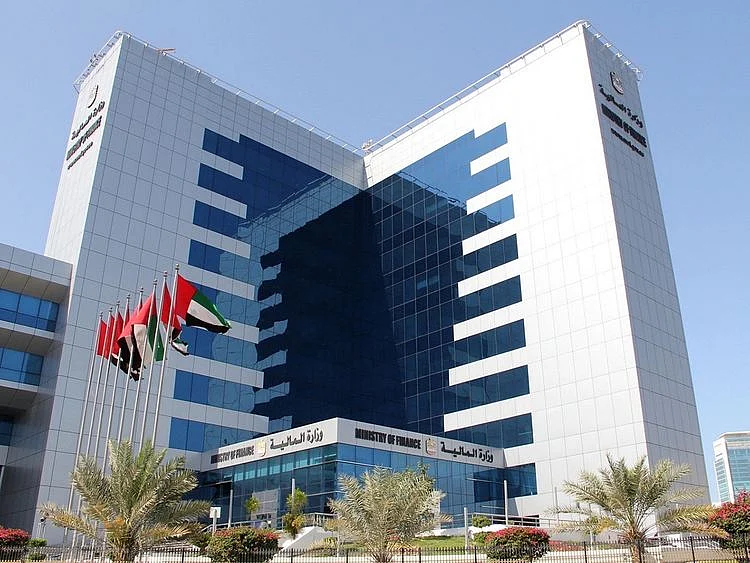UAE to start global sharing tax data on digital assets, cryptocurrencies by 2028
Move aligns with global efforts by OECD to expand tax transparency to new asset classes

Dubai: The UAE will begin sharing financial information on digital assets and central bank digital currencies with other countries from 2028, under new international tax transparency rules announced by the Ministry of Finance.
The move aligns with global efforts led by the Organisation for Economic Co-operation and Development (OECD) to strengthen oversight of digital finance and expand tax transparency to new asset classes.
Implementation of CRS 2.0, CARF
The Common Reporting Standard 2.0 (CRS 2.0) will take effect on January 1, 2027, with the first exchange of information to follow in 2028. The system updates the global framework for the Automatic Exchange of Information (AEOI) to cover electronic money, central bank digital currencies, and certain crypto asset activities.
The Ministry said the UAE’s adoption of CRS 2.0 and the Crypto Asset Reporting Framework (CARF) demonstrates its ongoing commitment to international cooperation and transparency. The frameworks were developed by the OECD to ensure that innovations in digital finance do not undermine global tax compliance.
In its announcement, the Ministry stated the decision “reflects the UAE’s advanced position in various global competitiveness indicators” and “confirms the excellence of the UAE’s financial system in terms of transparency and its adoption of the highest standards of governance.”
More oversight of digital finance
Under the revised framework, financial institutions and service providers handling crypto assets will be required to apply enhanced due diligence, auditing, and reporting standards. This ensures that the growth of the digital asset sector and financial innovation does not affect global tax transparency, according to the Ministry.
The update builds on Federal Decree No. (48) of 2018 and Cabinet Resolution No. (93) of 2021, which established the UAE’s system for automatic exchange of tax information. CRS 2.0 expands that structure to include emerging forms of value exchange, closing gaps that previously existed in the treatment of electronic and tokenised assets.
Globally, the OECD’s CRS 2.0 and CARF aim to address new challenges arising from the rapid adoption of digital currencies and blockchain-based financial products. As digital assets become increasingly integrated into mainstream finance, governments are moving to ensure they are subject to the same level of transparency as traditional accounts.
UAE’s strong role in global finance
The Ministry described the updated frameworks as “a significant milestone in the UAE’s journey towards strengthening its commitment to the highest international standards of tax transparency and expanding cooperation with international organisations such as the OECD and the global financial community.”
Officials added that the UAE’s alignment with the OECD’s updated standards reinforces its role as “a leading financial hub based on good governance and international compliance.” The coordinated implementation of CRS 2.0 and CARF reflects what the Ministry called a “pragmatic approach” to maintaining regulatory consistency across both traditional and digital financial systems.
The introduction of CRS 2.0 is expected to enhance investor confidence in the UAE’s markets by ensuring transparency and consistency in financial reporting. It also supports the country’s long-term strategy to maintain a stable and trusted regulatory environment that fosters responsible innovation and sustainable economic growth.
Global context, future outlook
The OECD’s expansion of the Common Reporting Standard represents one of the most comprehensive updates to international tax cooperation since the first CRS was introduced in 2014. Over 100 jurisdictions currently participate in the OECD’s global exchange of tax information, sharing financial data to detect and prevent tax evasion.
By extending this framework to digital assets and central bank digital currencies, participating countries aim to create a unified global standard for reporting and information exchange across all forms of value.
The UAE’s implementation of CRS 2.0 from 2027, followed by the first exchange of information in 2028, marks another step in the country’s alignment with international financial governance. It underscores the UAE’s commitment to transparency, responsible innovation, and sustained cooperation with global institutions shaping the future of digital finance.
Sign up for the Daily Briefing
Get the latest news and updates straight to your inbox
Network Links
GN StoreDownload our app
© Al Nisr Publishing LLC 2026. All rights reserved.
